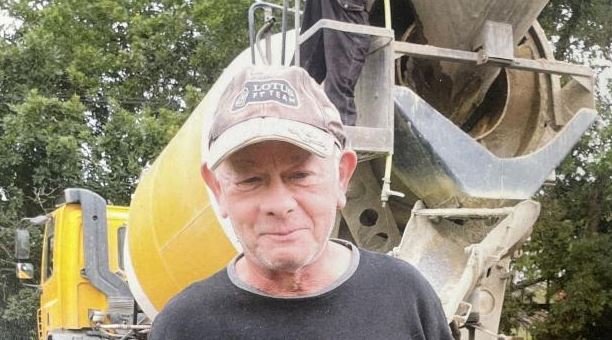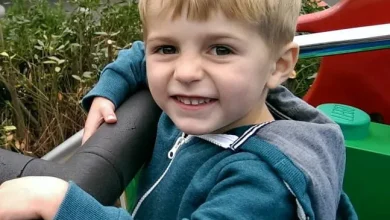Grandad, 63, choked to death on chunk of steak after medic arrived with broken defibrillator

The tragic story of Paul Barnes, a 63-year-old man who lost his life after choking on a steak dinner, has left his family and community in shock and grief. Paul was a well-loved and respected member of his community in East Harling, where he lived with his son, daughter-in-law, and three-year-old granddaughter. He was known for his kind and generous nature, always willing to lend a helping hand to those in need. The family has now raised concerns about the response to the emergency call, citing that the volunteer medic who arrived at the scene was equipped with faulty equipment, including a broken defibrillator. This has sparked a heated debate about the reliability and preparedness of volunteer medical responders in emergency situations.
The events of that fateful evening unfolded when Paul’s family was enjoying their weekly “steak night” tradition. The evening took a devastating turn when Paul began to choke on his steak, and despite the best efforts of his family and the medical responders, he was unable to be saved. The first person to arrive at the scene was a community first responder from the Norfolk Accident and Rescue Service charity, who was equipped with a broken defibrillator. In a desperate bid to save Paul’s life, the responder asked his son to drive to the nearest fire station to borrow a defibrillator, which he promptly did. However, it was later discovered that Paul did not have a shockable heart rhythm, rendering the equipment unnecessary. The delays and errors in the response to the emergency have left Paul’s family with many unanswered questions and concerns about the quality of care he received.
The inquest into Paul’s death has heard that the community responder arrived at the scene with a broken defibrillator, which would have exacerbated the already distressing situation. Furthermore, a medical device known as an i-gel, used to assist with a person’s airway, was incorrectly placed, and the obstruction in Paul’s throat was not seen by either the volunteer or the medic who arrived next. A paramedic who arrived later at the scene described it as “chaotic,” although the errors made are not thought to have affected the outcome of the situation. The coroner, Johanna Thompson, has concluded that Paul died an accidental death and has announced plans to write to the Norfolk Accident and Rescue Service charity to seek assurances about the frequency of equipment checks and maintenance. The incident has raised important questions about the training and preparedness of volunteer medical responders and the need for robust systems to ensure that equipment is properly maintained and functioning.
Paul’s family has been left to pick up the pieces and come to terms with the loss of a loved one. His son, Darren Barnes, has paid tribute to his father, describing him as a “brilliant man” who was loved by everyone in the community. Paul was a retired church restorer, and his passing has left a huge void in the lives of those who knew him. The family’s grief is still raw, and the knowledge that the response to the emergency was hindered by faulty equipment and human error has only added to their pain. As they navigate the difficult days ahead, they will be seeking answers and assurances that steps are being taken to prevent similar tragedies from occurring in the future. The community has rallied around the family, offering support and condolences, but the loss of Paul Barnes will be deeply felt for a long time to come.
The incident has also highlighted the importance of proper training and equipment for volunteer medical responders. While their bravery and willingness to help are commendable, the fact that faulty equipment was used in this instance is a cause for concern. The Norfolk Accident and Rescue Service charity has a vital role to play in providing emergency medical care in the community, and it is essential that they take steps to ensure that their equipment is properly maintained and that their responders are adequately trained. This includes regular checks on equipment, proper training on the use of medical devices, and protocols in place for emergency situations. By learning from this tragedy, the charity can improve their services and reduce the risk of similar incidents occurring in the future.
In conclusion, the tragic death of Paul Barnes has left a community in shock and a family in grief. The circumstances surrounding his death have raised important questions about the response to emergency calls and the preparedness of volunteer medical responders. As the family and community come to terms with their loss, they will be seeking answers and assurances that steps are being taken to prevent similar tragedies from occurring. The incident serves as a reminder of the importance of proper training, equipment, and protocols in emergency medical care, and it is essential that lessons are learned from this tragedy to improve the quality of care provided in the future. Paul Barnes may be gone, but his memory will live on through the countless lives he touched, and his legacy will serve as a reminder of the importance of kindness, generosity, and community spirit.









ewau3z
Your point of view caught my eye and was very interesting. Thanks. I have a question for you.